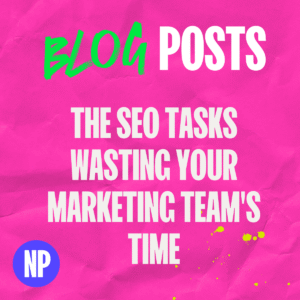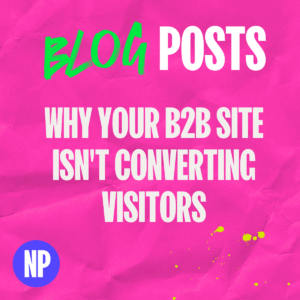Apparently, the only businesses allowed to rank locally are the ones with swanky high street shopfronts. At least, that’s what some so-called ‘local SEO experts’ would have you believe.
Load of bollocks, if you ask me.
Service-area businesses are absolutely smashing it in local search all over the place. Copywriters working from home offices, business coaches without dedicated meeting spaces, plumbers who operate out of a van – all ranking above established physical businesses. Not a bricks-and-mortar location in sight.

The Myth of the Mandatory Physical Address
This nonsense about needing a physical address comes from a misunderstanding of Google’s guidelines. Yes, Google requires a physical address for your Google Business Profile. But for service-area businesses, that address doesn’t have to be a public-facing office or shop.
Local SEO is rather like house hunting. It’s not about having the biggest property on the street – it’s about being in the right neighbourhood. Your service areas are your neighbourhoods, and Google wants to know you’re genuinely connected to them.

What actually matters for Local Rankings
So if a fancy office isn’t the key to local SEO success, what is? Two things: relevance and reputation.
Relevance – Showing Google you serve the area
Google wants to rank businesses that are relevant to the searcher’s location. For service-area businesses, that means clearly communicating where you operate.
That’s where your Google Business Profile comes in. Instead of an address, you list your service areas. Be specific. Don’t just say “London” – list the actual boroughs or neighbourhoods you cover.
Optimise your website content too. Mention your service areas throughout your site. Get specific about the locations in your case studies, testimonials, and service pages.
The goal is to paint a clear picture for Google: “This business serves these specific areas.”
Reputation – Building real Local Authority
The other piece of the puzzle is your local reputation. Google wants to rank businesses that are trusted and recommended by the local community.
How do you build that reputation? By providing a brilliant service and encouraging happy customers to shout about it.
Encourage reviews on your Google Business Profile. Respond to them, good or bad. Engage with your local community on social media. Get involved with local events and charities.
Build real relationships with other local businesses. If the bakery down the road recommends you to their customers, that speaks volumes to Google.
It’s not about spamming your address everywhere. It’s about being a genuine, active part of your local business community.

Case Study – The Freelance Copywriter who outranked the Agencies
A brilliant example of this in action: a freelance copywriter client. Let’s call her Sarah.
Sarah works from her home office. No fancy high street premises, just her and her laptop, serving small business clients across the city.
When she first sought help, she was struggling to be seen in local searches. The big established copywriting agencies with their plush offices were dominating the top spots.
I optimised her Google Business Profile, clearly defining her service areas. I revamped her website content to highlight the specific locations she served, with detailed case studies and glowing testimonials from clients in each neighbourhood.
Sarah focused on providing an exceptional, personalised service, consistently encouraging reviews and nurturing relationships with other local businesses and community groups.
Within 6 months, she was ranking in the top 3 for most of her key locations. Not because she suddenly got a swanky office, but because she demonstrated her local relevance and built an outstanding local reputation.

Business Coaches can thrive without premises too
The same success happens with business coaches who work virtually or travel to their clients. By focusing on specific local business communities they serve, joining local business groups, and contributing to local business publications, they’ve established themselves as the go-to experts in their areas – all without a physical location.

Don’t let anyone tell you otherwise
Don’t let anyone tell you that you need a physical shopfront to succeed in local SEO. If you’re a service-area business, you have every opportunity to rank just as well as – if not better than – your bricks-and-mortar competitors.
Focus on clearly communicating your service areas and building a genuine local reputation. Show Google and your customers that you’re a trusted, integral part of your local business community.
That’s how you dominate local SEO – no fancy office required.
Want to avoid falling for more SEO nonsense like this? My “SEO Myths Debunked” book exposes over 70 ridiculous SEO myths that are costing you time and money. Get your copy now and stop wasting resources on SEO snake oil that never worked in the first place.




